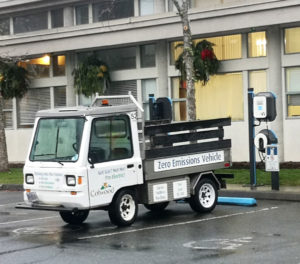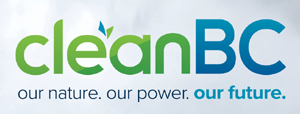
Thursday, March 28, 2019 ~ COASTAL BC.
by Mary P Brooke ~ West Shore Voice News
A ‘telephone town hall’ about the Province’s comprehensive CleanBC plan to create a cleaner, stronger and more prosperous province was hosted on Monday evening, March 25, by George Heyman, Minister of Environment and Climate Change Strategy.
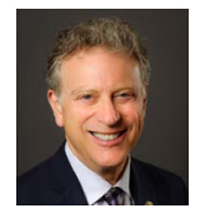
It was the third of four telephone town halls conducted over a few weeks (March 6 Lower Mainland & southwestern BC, March 13 Kootenays, March 25 Vancouver Island and coastal areas, and again Lower Mainland & southwestern BC on March 27). Participants pre-registered and were auto-dialed ahead of the 7 pm start. Closed captioning was available.
The presentation style was articulate and slick. If it weren’t for the real callers and three real-time polls using the smartphone touchpad, it otherwise sounded highly chipper and heavily scripted.
“Building a cleaner, brighter future for BC is something we’re all a part of, and CleanBC is our Province’s plan to help get us there,” says Heyman. “We are committed to listening to British Columbians as we take action on expanding a low-carbon economy to protect our natural environment and the place we call home.”
The province is investing $902 million over three years into CleanBC initiatives.
“Leadership creates opportunities,” said Heyman during the call. There will be incentives for business and skills training for workers toward a new economy.
Transportation will be cleaner and more affordable in the years ahead, stated Heyman, and encouraged listeners to participate in the Active Transportation public input that is available online to 4pm on Monday April 15.
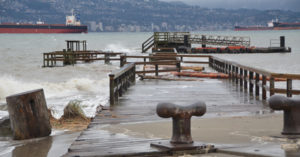
The first poll asked what the participant’s top environmental concern is, and given five rapid-fire options in this order: Drought & Fires | Effect of climate change for future generations | Rise in Sea Level | Overall Impact | Other. The results came in 50% for overall impact, with 22% for the impact on future generation, 17% for drought and fires, other got 9%, and rising sea levels only 2% despite the coastal region being surveyed.
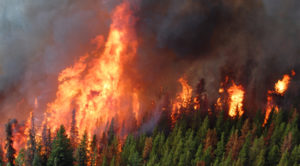
Heyman said on the call that it was interesting but not surprising that a higher number of callers from northern regions (in previous town halls) put Drought & Fires at the top of the list, as the wildfires were mostly in the interior regions. However, air quality alerts were in place all over BC last summer, including the Greater Victoria area.
The second poll in the 90-minute call asked what the BC Government’s top priority should be for addressing environmental challenges. Results were more evenly spread than in the first poll. In the order asked: Cleaner transportation | Cleaner industry | Reducing waste | Cleaner energy sources | Other. The results from most concerned to least: 27% for cleaner industry, 23% for cleaner energy, 19% for cleaner transportation, 18% for reducing waste, and 13% for other.
Heyman gave a pitch for how well carbon pricing ($35/tonne) has been working for BC in the past 10 years or so. Heyman said that companies are responding with changes to be cleaner, that emissions have been cut by 15%, and that British Columbians are getting rebates which lower their taxes.
After an hour, the call started to seem long.
The third in-the-moment poll came very close to the end of the 90-minute call — perhaps to see how many people would hang on the line for the duration. The question was which aspect of Clean BC should be given priority, with these results: community planning advice (26%), better use of waste (24%), make buildings more efficient (20%), cleaner fuel for heavy duty trucks (17%), and other (13%).
There were about 17 callers from a range of locations including Nanaimo, Campbell River, Powell River, the Gulf Islands and Greater Victoria. They asked their questions in real-time on the line on topics such as commuter congestion, whether LNG is clean, what sorts of alternate power sources are coming on stream, what’s being done about forest fires, the use of electric generators to keep communities going during outages, reducing emissions from waste, whether the BC Hydro charter will be changed to facilitate electricity back into the grid, innovations around the sea level rise, and whether large cannabis operations will strain the electrical grid.
